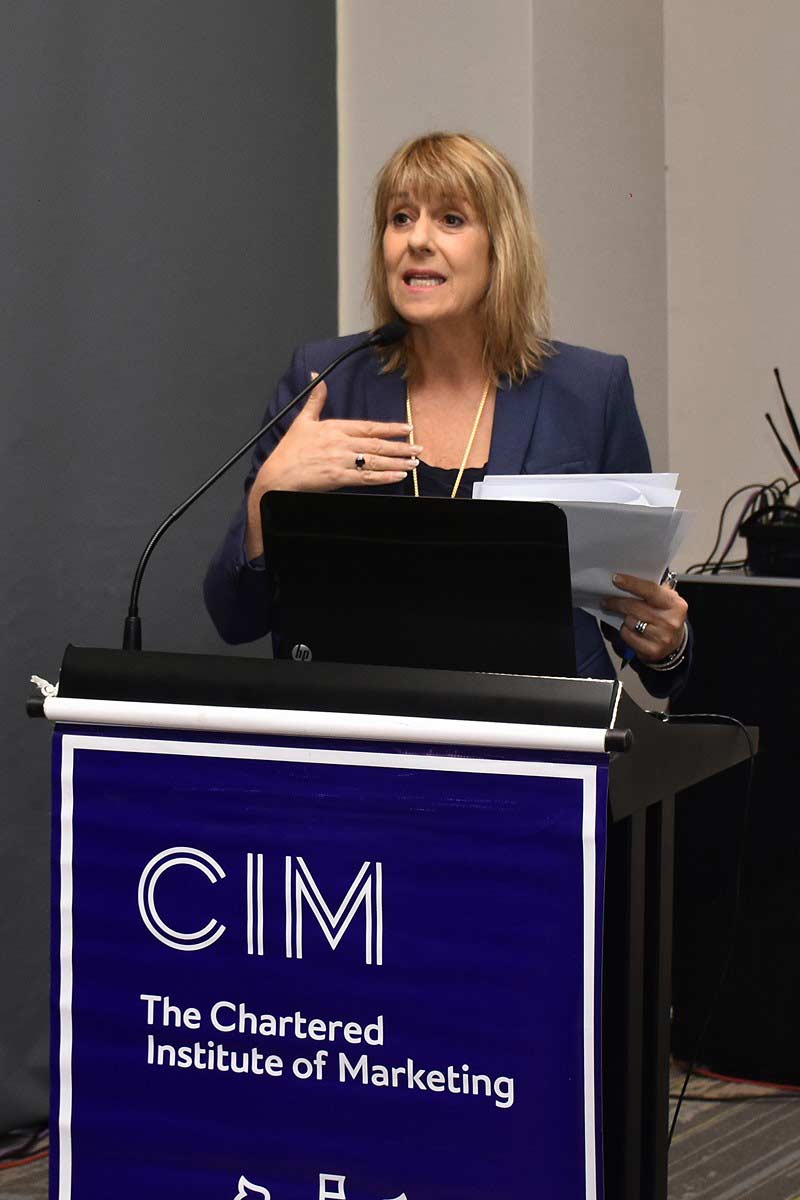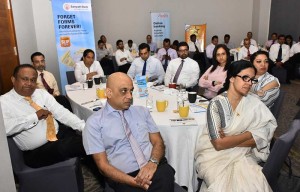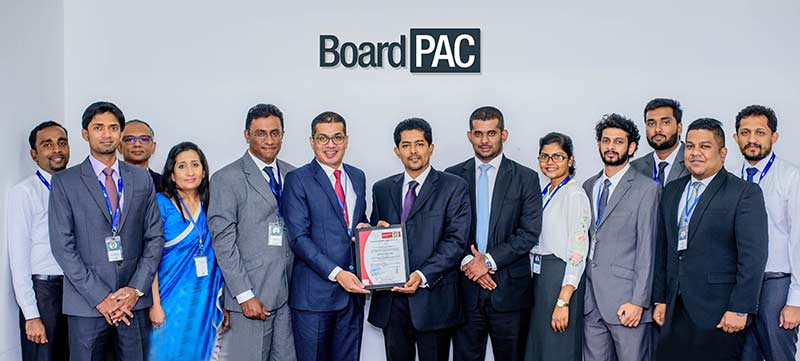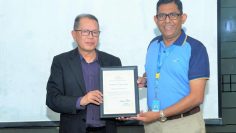
CIM SL’s first CEOs’ Breakfast Forum for 2018 Discusses WFP – World Food Programme – and Private Sector Engagement
CIM Sri Lanka held its first CEO’s Breakfast Forum for 2018 recently discussing a topical theme of the private sector’s role in the pressing challenges of climate change, food security and the way forward.
The Speaker at the event was Brenda Barton, World Food Programme’s (WFP) Representative and Country Director who was assisted by Laksiri Nanayakkara, WFP Food Security Analyst. The forum was moderated by Nisthar Cassim, Editor, Daily Financial Times, Wijeya Newspapers Ltd.
Drawing on her vast experience, Brenda Barton spoke on syncing human rights and businesses. She said, “In many countries businesses are reducing inequality, promoting peace and ensuring the prosperity and protection of the planet as a corner stone in their corporate value chain.” Citing the three reasons why it’s important, Barton explained, “Reputational because reputations can be enhanced or destroyed in the free flowing digital world, operational as labour practices where recruitment and retention of quality people is important and legal where investigations and stringent regulations are practiced as companies which compete internationally have to demonstrate higher standards.”
Explaining WFP’s role, Barton added, “As the WFP we have a special affinitive towards the business community, as to help solve global hunger we need to work with the private sector and with civil society. We need you to partner with us with technology, tools, and together with the business sector to be hand in hand. We can share and exchange information in a much better way so as to have a better outcome for the communities.”
Laksiri Nanayakkara explained to the audience, WFP’s initiative ‘Platforms for Real-time Information Systems (PRISM)’ which is used to understand the effects of a disaster in order to help launch a faster, more effective response to reach those in need. He explained how the open source WFP platform uses pool data to help the Government, UN Partners, and NGOs to prepare and respond in the event of a disaster.
Nanayakkara said, “It is a system that in the future everyone can access freely.” However, he noted, “Sri Lanka has to have a better plan and preparedness using new technology for businesses to adapt and be prepared for disasters.”
During the thought provoking panel discussion Nisthar Cassim as moderator, discussed WFP’s experience in engaging and consultation with the private sector. Commenting on this Barton said, “It has to be part of the wider partnership. There are policies, planning, welfare projects etc., but they are not sufficient. Challenges cannot be solved by Government and UN agencies alone, the business community must play a part.”
Barton urged the audience, “It is a win-win situation because there are business opportunities. We are going to launch a movement and everybody has to be involved with their own collective actions. It has to be organic, everyone who cares about the issue, should step forward and be part of the solution. We are hoping to create an opportunity for everyone to be engaged and bring their own individual solutions to the table.”
Commenting on WFP’s ongoing plans Barton concluded, “What is needed is effective agriculture and how we can work towards it. We are speaking with the government on how the corporate sector can come in, and looking at having a business advisory board. We want businesses to be part of the process to help change and save lives.”
CIM is the largest community of professional marketers in the world with 100 years of heritage. As the leading professional body for Marketing, CIM places great emphasis in bringing together programmes that are topical and relevant targeting the members and the entire business community. CIM Sri Lanka is the first International branch of CIM UK and is proud to claim the largest membership outside the UK. CIM Sri Lanka has always campaigned for high professional standards, greater recognition for the Profession and Marketing excellence in Sri Lanka through education, training and development.







